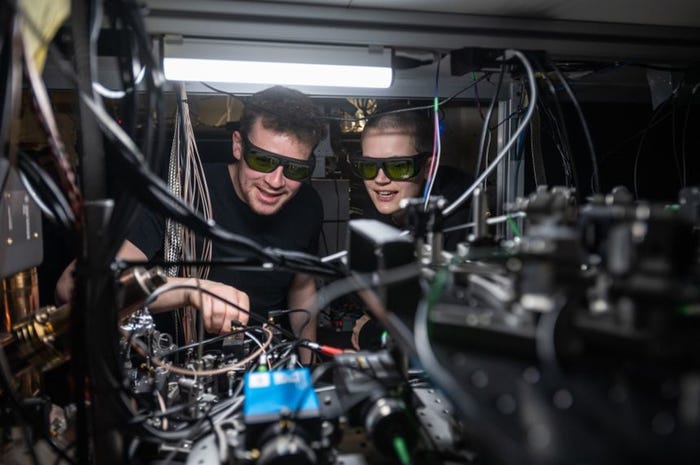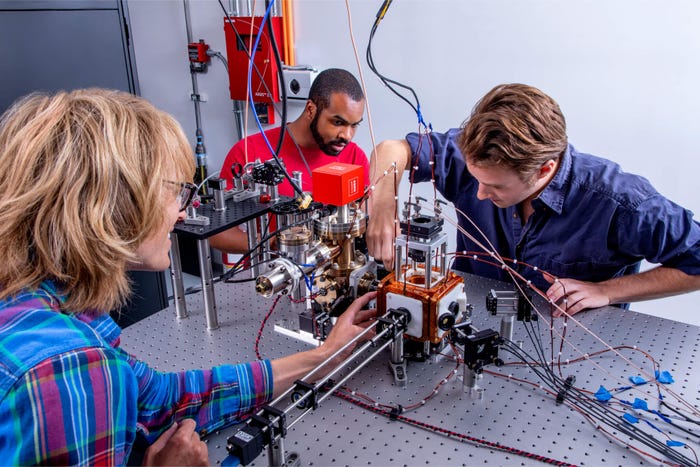
Connects decision-makers and solutions creators to what's next in quantum computing
Deloitte Predicts Accelerated Quantum Adoption in 2023Deloitte Predicts Accelerated Quantum Adoption in 2023
Companies are recruiting for quantum talent and addressing quantum cybersecurity threats

Quantum computers will become useful sooner than expected, enterprises looking to adopt the technology will go on a hiring spree and companies will address the quantum cybersecurity threat. These are the predictions for the quantum computing industry in 2023 and beyond from Deloitte Consulting global quantum lead Scott Buchholz.
Timeline of Adoption is Accelerating
According to Buchholz, while quantum computing continues to generate buzz in the media and with technology players, most businesses are still years away from seeing material value from the technology. Today’s machines are not robust enough to support production scale due to limitations with qubits counts, stability, and quality.
However, developments have over the past 12 months accelerated Deloitte’s projections of when quantum computers may begin to find useful applications and there are things worth investigating today.
“We’ll continue to analyze key industry uses cases, benchmark performance, research error correction techniques, and conduct proof of concepts in the life science, financial services, government, and manufacturing industries,” Buchholz says.
“That said, there are quantum-inspired or quantum adjacent technologies (quantum annealers) that are demonstrating some value today from optimization problems like logistics, routing, and complex scheduling to challenges that only a data scientist could love: building explainable ensemble machine learning models and down-selecting key features.”
Quantum Workforce is a Priority
Building quantum computers is mindbogglingly difficult and requires an interdisciplinary approach, cutting across fundamental physics, computer science, hardware/software design, specialized communications, cryptographic implementation, engineering and other skills typically found at Ph.D. levels. So it’s no surprise that half of most quantum companies are hiring, according to the World Economic Forum (WEF).
Buchholz says that the good news is that quantum engineers don’t necessarily require advanced degrees in physics or mathematics. With a year or two of investment per individual, organizations can train parts of their workforce to become quantum proficient.
“We believe a growth of Quantum Information Science (QIS) degrees and focus on STEM programs will be offered more widely across academia alongside quantum certification programs and training worldwide,” says Buchholz.
“And until a quantum-ready workforce begins to emerge, those who have the requisite combination of science, math, and computer science will continue to be in high demand.”
Enterprises Address Quantum Security Threat
As quantum capabilities and the number of usable qubits rapidly evolve, threats to some of our current encryption techniques are escalating.
In a recent Deloitte poll, just over half (50.2%) of responding organizations considering quantum computing benefits believe their organizations are at risk for “harvest now, decrypt later,” (HNDL) cybersecurity attacks.
“Given the widespread nature of digital technologies, organizations need to prioritize understanding their quantum risks today and taking the steps to inventory the problem to transition to quantum-resistant cryptography as it becomes more widely available,” Buchholz says.
About the Author
You May Also Like






